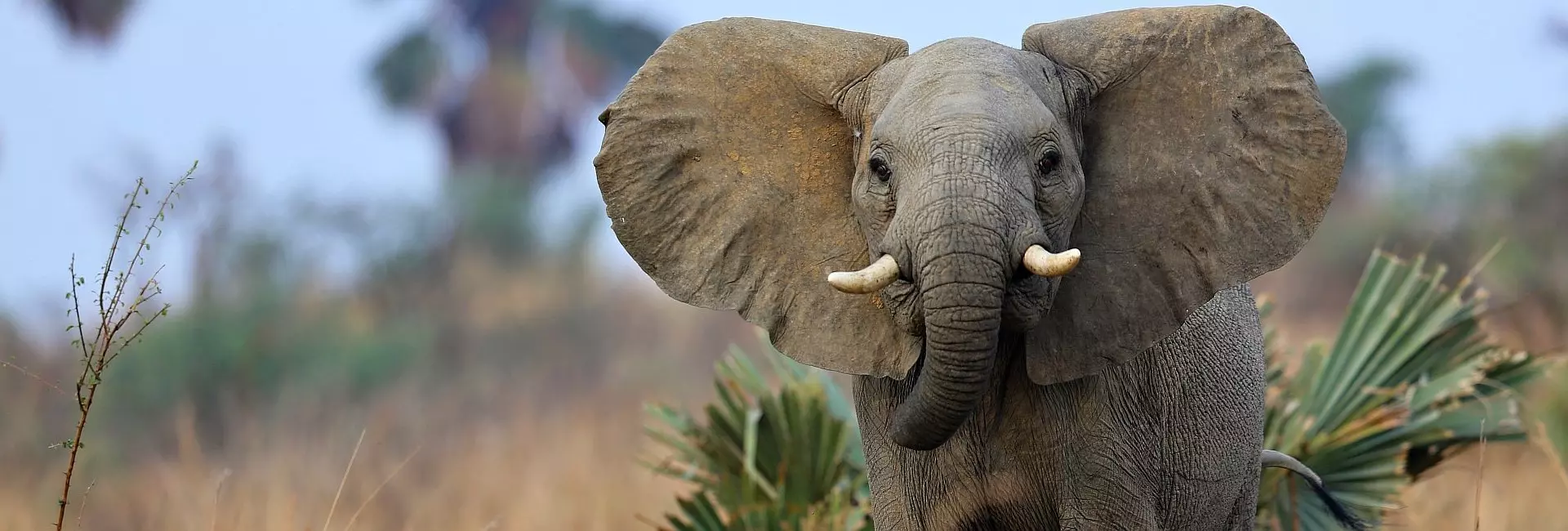
Elephants
Volunteer With Elephants
Embark on a remarkable journey where you can make a real difference to elephant conservation efforts in Asia and Africa. While there are many elephant sanctuaries and orphanages dotted throughout these regions, The Great Projects focuses on ethical elephant volunteer programs in wildlife reserves and national parks.
Volunteer with elephants and help combat human-elephant conflict in the emerald isle of Sri Lanka or the striking deserts of Namibia. Protect elephants from the effects of habitat loss in the wilds of the Bornean rainforests or aid the fight against ivory poaching and illegal hunting in the bushvelds of Africa.
By monitoring elephant movements and behaviour, participating in poaching patrols, planting trees, building protection walls, working with local communities, and even helping to translocate and collar elephants on certain projects, volunteers can help secure a future for one of the world's iconic animals.

Projects Do More
13 - 27 Nights from $1,619.00
Help make a difference to Zimbabwe's incredible wildlife and visit the breath-taking Victoria Falls.
View project13 - 83 Nights from $1,369.00
Search for and see the desert elephants in the beautiful Namibian Desert
View project9 Nights from $1,369.00
Aid elephant conservation as a family on this wild adventure in the stunning Namibian Desert.
View project11 Nights from $1,807.00
Help to restore Borneo’s rainforest and provide a safe home for wild orangutans and pygmy elephants.
View project
8 - 85 Nights from $1,119.00 $1,007.00
Encounter the beautiful Asiatic elephant deep within the heart of the vast and verdant Sri Lankan jungle!
View project7 - 84 Nights from $744.00
Join this 'Big 5' conservation project and help make a difference to the lives of the amazing animals that live here!
View project7 - 84 Nights from $994.00
Volunteer with the 'Big 5' on one of the country’s most diverse wildlife reserves.
View project7 - 84 Nights from $1,119.00
Volunteer with rhinos and elephants in Zimbabwe on this amazing conservation project!
View project7 - 14 Nights from $1,494.00
Conserve rhinos and elephants on horseback at a unique game reserve in Zimbabwe.
View project7 - 56 Nights from $1,994.00
Luxury meets conservation at our brand-new 'Big 5' project! Experience wildlife rescue and rehabilitation missions in the home of Safari, South Africa.
View projectTours See More
On the Blog
Elephant Information
Elephants At A Glance
Endangered Status
Endangered
Number remaining in the wild
Asian: 40,000 – 50,000, African: 415,000
Endemic Region
Africa and Asia
There are three species of elephants; all are classified as endangered and critically endangered.
- African savannah elephants - endangered
- African forest elephants - critically endangered
- Asian elephants - endangered
The WWF reports there are only 415,000 African elephants remaining in the wild and approximately 40,000-50,000 Asian elephants. The African savannah elephant has been classified as endangered by the IUCN Red List, with over 50% of the population lost in the last 75 years (or three generations). The elephant population is still declining, and the previous loss is likely irreversible. The assessment of African forest elephants shows an over 80% reduction in the population in the past 93 years. This, combined with ongoing habitat loss (unlikely to be reversible), is the reason for their critically endangered status.
The Asian elephant, listed as endangered, has also suffered a 50% decline in population over the past 75 years, with habitat loss/degradation and poaching mentioned as root causes. The Sumatran subspecies has suffered immensely and is currently listed as critically endangered.
Elephants face a range of threats that endanger their survival in the wild. These threats include:
- Poaching: Despite international bans on the ivory trade, poaching remains a significant problem, and ivory is valued highly on the black market. Apart from ivory, elephants are also targeted for their skin, used in traditional medicines and jewellery. Other body parts appear on the market as decorative items.
- Habitat Loss: Rapid deforestation, human settlements and agricultural expansion have led to substantial losses of natural habitats for elephants. Humans have significantly reduced their living space, and the fragmentation makes it harder for them to find mates and maintain genetic diversity.
- Human-Elephant Conflict: As human populations expand into elephant territories, conflicts arise. Elephants may raid crops and damage property, leading to retaliation by farmers and villagers. These conflicts can result in injuries or deaths for both humans and elephants.
- Climate Change: Changing weather patterns affect the availability of water and food resources for elephants. Droughts can lead to water shortages and limited food supply, and altered ecosystems can impact the vegetation forest elephants depend on.
- Captivity and Exploitation: Elephants were often captured and used for entertainment, tourism, and labour. These practices reduced wild populations and have led to physical and psychological harm (some of which continue to this day).
- Disease: Elephants are susceptible to some diseases transmitted from domestic animals and humans. Diseases like tuberculosis can spread rapidly among elephant populations, especially in areas where they come into contact with livestock.
You can volunteer with elephants in Africa and Asia.
The Great Projects offer a variety of elephant volunteer projects, some of which are focused entirely on the conservation of elephants, such as in Namibia and Sri Lanka, and others where you are likely to encounter them as part of your daily activities.
You can aid African elephant conservation with us in South Africa, Zimbabwe, and Namibia or help conserve Asian elephant populations in Sri Lanka and Borneo.
It is notoriously difficult to tell how ethical elephant sanctuaries are, which is why The Great Projects works entirely with elephant conservation projects in wildlife reserves and national parks where elephants roam freely.
If you're interested in volunteering at an elephant sanctuary in Thailand or similar destinations for elephant volunteering, it's important to avoid sanctuaries that allow elephant riding, bathing, and performances. Ethical elephant sanctuaries prioritise observation and limit interactions. They will not use bull hooks or chains to control and contain the elephants.















